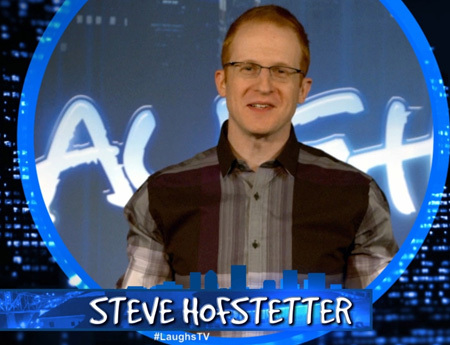Fox TV Stations Have Last Laugh With ‘Laughs’

The smarter way to stay on top of broadcasting and cable industry. Sign up below
You are now subscribed
Your newsletter sign-up was successful
The Fox-owned stations' weekly half-hour, Laughs, perfectly represents what the group is looking for in a syndicated show—it’s inexpensive, flexible and relatively quick and easy to produce.
“You will see a model emerge in regular syndication where you try something for 13 weeks and if it succeeds, you continue on,” says Stephen Brown, executive VP, programming and development, Fox Television Stations. “The old model of getting stuck with an expensive dud is bad for everyone.”
Testing a show and then keeping it on the air after it proved its worth is something the Fox station group has been wanting to do, with shows such as Warner Bros.’ Bethenny and The Real. They haven’t been able to do it, however, because the math on those shows didn’t work out. Most talk shows are too expensive to keep in production without national distribution first backing them up.
Laughs, however, is created almost like a Web series, keeping its footprint small.
Curating the Country’s Best Comedy
The weekly half-hour was created after Fox Television Stations CEO Jack Abernethy had the brainstorm of curating the country’s best stand-up comedy into a weekly TV show. Brown was called in to turn the idea into reality and he, in turn, sought out Steve Hofstetter, a stand-up comedian with whom Brown had worked on the group’s entertainment magazine hybrid, Dish Nation.
After premiering as a test last summer, today the show airs on 11 TV stations, including Block Communications-owned Fox affiliate WDRB Louisville, Ky. It’s currently renewed through mid-May and likely to continue after that.
The smarter way to stay on top of broadcasting and cable industry. Sign up below
In the six months or so that Laughs has been on the air, it has managed to more than double ratings in its time slots on Saturday nights in top markets such as WNYW New York, WFLD Chicago, KDFW Dallas and KSAZ Phoenix, says Brown.
Besides performing himself, Hofstetter also produces comedy festivals around the country. As a benefit of both these professions, Hofstetter says he has a “fairly encyclopedic knowledge of who runs what clubs and I have relationships with those people.”
For that reason, it’s not uncommon for Hofstetter to get a call to come check out an up-and-coming comedian, or be sent clips of someone. “I’ve worked with Laugh Factory, Gotham, The Improv, Hard Rock Cafe, Comedy Works—some of the biggest brand names in live performance.”
There’s something in it for these brands, too. Laughs includes the name of the comedian on the clips it runs, and “nine out of ten times, the club has a logo behind the comedian,” says Hofstetter.
“We do everything we can to help brand the clubs and brand the comedians and let people know exactly what and who they are watching. Any comedy club that doesn’t see the value of being a part of this show shouldn’t be a comedy club,” he says.
Laughs also offers a heavy social media component, posting clips of its comedians on sites such as Twitter, Facebook and on the Laughs TV channel on YouTube.
“Laughs is unique for so many reasons,” says Hofstetter. “First, we’re licensing rights from the comedians and the clubs and not buying them. That allows the comedians to use that footage at a later date. That is invaluable to the comedian.”
Also, because Laughs only airs 90-second (or so) clips of any particular performance, comedians are being shown in their best light.
“Comedy is like baseball,” says Hofstetter. “We’re not asking anyone to pitch a perfect game. Instead of showing one perfect game from one comedian, we’re able to show nine perfect innings.”
Hofstetter says he’s already seen how platforms such as YouTube, podcasting and now, Laughs, have benefited stand-up comedy.
“Every year, the popularity of podcasts and shows like ours inspire comics. We could fill five seasons with what’s already in front of us. Next season, if we come back, we will not only have the same wonderful comedians to go back to, we’ll have new talent as well.”
Contributing editor Paige Albiniak has been covering the business of television for more than 25 years. She is a longtime contributor to Next TV, Broadcasting + Cable and Multichannel News. She concurrently serves as editorial director for The Global Entertainment Marketing Academy of Arts & Sciences (G.E.M.A.). She has written for such publications as TVNewsCheck, The New York Post, Variety, CBS Watch and more. Albiniak was B+C’s Los Angeles bureau chief from September 2002 to 2004, and an associate editor covering Congress and lobbying for the magazine in Washington, D.C., from January 1997 - September 2002.

